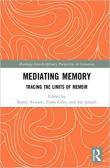AustLit
Latest Issues
AbstractHistoryArchive Description
'The argument has been made that memoir reflects and augments the narcissistic tendencies of our neo-liberal age. The Literature of Remembering: Tracing the Limits of Memoir [sic] challenges and dismantles that assumption. Focusing on the history, theory and practice of memoir writing, editors Bunty Avieson, Fiona Giles and Sue Joseph provide a thorough and cutting-edge examination of memoir through the lenses of ethics, practice and innovation. By investigating memoir across cultural boundaries, in its various guises, and tracing its limits, the editors convincingly demonstrate the plurality of ways in which memoir is helping us make sense of who we are, who we were and the influences that shape us along the way.'
Source: Publisher's blurb.
Notes
-
Contents indexed selectively.
Contents
-
After He Shot Arthur Calwell : Peter Kocan's Use of the Second Person,
single work
criticism
(p. 91-103)
'Tony Davis reviews how Peter Kocan's linked novellas pioneered the use of the inherently unstable and shape-shifting second-person narrative voice to give an insider's view of mental illness and disassociation. By heightening the effects of paranoia and the claustrophobia of institutional life, Davis argues that Kocan's novella produces a richer reading experience than his first-person work. Davis also argues that the cloak of fiction gave Kocan freedom to describe his experience more openly, so the novellas become convincing, if unconventional, memoirs.'
Source: Introduction, p.6
-
Eco-Memoir : Protecting, Restoring, and Repairing Memory and Environment,
single work
criticism
(p. 141-156)
'Jessica White examines eco-memoir in two examples: Tim Winton's Island Home (2015) and Kim Scott's and Hazel Brown's Kayang and Me (2005). She explores how memory can describe the loss of an environ-ment but also promote its recovery, and the implications for each writer's identity. Her chapter argues that, alongside science, literary expressions of memory have an important role to play in raising awareness of the sustainable use and protection of our environment.'
Source: Introduction (p.6).
-
Travel Memoir and Australia : From Twain to Tracks and the Present Day,
single work
criticism
(p. 192-204)
'Ben Stubbs' chapter demonstrates the new depths possible within hy-brid travel memoir. He looks at its evolution from works by Mark Twain to Robyn Davidson and Don Watson, tracing the progression of the genre from Twain's self-centered imperialism to Davidson and Watson's cultural self-awareness.'
Source: Introduction, p.7
-
Redressing the Silence : Racism, Trauma, and Aboriginal Women's Life Writing,
single work
criticism
(p. 284-298)
'Willa McDonald looks at works by three Indigenous women writers which have played a significant role in breaking the silences that exist around the lives of Australia's First Peoples under European Settlement. These texts respectively tackle overlapping yet distinct themes, broaden-ing western notions of individual memoir to include collective and oral traditions, contributing to a long-term public dialogue about Indigenous history and politics.'
Source: Introduction, p.8
-
Lest We Forget : Mateship, Masculinity and Australian Identity,
single work
criticism
(p. 299-314)
'Jack Bowers examines the role of national narratives in creating con-text for gender relations and social attitudes. He analyzes memoirs writ-ten by three Australian men raised by fathers whose lives were framed by a masculinist discourse of mateship in war and struggles against adversity. He demonstrates how a national identity which is fundamentally misogynist, violent, and controlling, has sent ripples of trauma across generations.'
Source: Introduction, p.8




